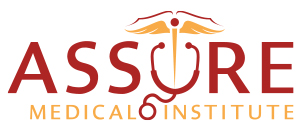In today’s rapidly developing instructional landscape, the demand for dependable, detailed, and obtainable resources of info is more than ever before. Research Encyclopedias have actually emerged as vital tools for students worldwide, using a wide range of understanding at their fingertips. This post explores the significance of Homework Encyclopedias, their development over the years, and their role in supporting scholastic success.

As traditional education and learning techniques adapt to digital innovations, discovering resources like Homework Encyclopedias continue to work as keystones of student knowing, giving structured and curated content. Comprehending their value and effect can assist trainees leverage these sources successfully in their instructional journey.
The Development of Research Pls help asap!!!!!!!!!!!!! IF U HAVE READ “THE SECRET GARDEN” PLEASE HELP ME W/ THIS, pls and thx Encyclopedias
The concept of encyclopedias dates back to old human beings, where understanding was thoroughly documented and preserved. From the scrolls of the Library of Alexandria to the printed volumes of the Renaissance, encyclopedias have actually historically been treasured as databases of human success and understanding.
With the arrival of the digital age, encyclopedias have actually transcended their conventional print layout, becoming a lot more interactive and accessible. Digital Homework Encyclopedias currently supply multimedia sources, consisting of video clips, graphics, and interactive modules, which enhance the finding out experience and make complicated topics a lot more comprehensible.
Today’s Research Encyclopedias are not just readily available online yet are likewise continually updated to make sure the details remains current and relevant. This shift not just equalizes accessibility to information however additionally changes how trainees involve with their researches, helping with a deeper understanding with varied knowing modalities.
Secret Advantages of Homework Encyclopedias
Research Encyclopedias supply various benefits for pupils, teachers, and even parents sustaining their kids’s discovering ventures.

They function as trusted friends, providing organized details that helps in scholastic study and homework completion.
Among the most significant benefits is their capability to provide validated and thorough material. Unlike open-source information, which can frequently be unstable, encyclopedias are curated by experts, making sure accuracy and credibility. This dependability is important for pupils that need trustworthy details for their tasks and study projects.
In Addition, Homework Encyclopedias assistance independent learning and crucial reasoning. By motivating trainees to inquire proactively, they promote a feeling of curiosity and campaign, which are vital abilities for long-lasting learning.
- Comprehensive Material: Encyclopedias cover a broad range of topics, supplying info on subjects extending different disciplines.
- Interactive Knowing: Multimedia elements involve different discovering styles, making information digestible and appealing.
- Credibility: Curated by experts, encyclopedias supply reputable and precise details.
- Regular Updates: Normal updates guarantee trainees have accessibility to the most current information available.
Comprehending these benefits enables trainees to maximize their finding out possible by efficiently making use of Research Encyclopedias as part of their research study routine.
How to Make Use Of Research Encyclopedias Efficiently
To make the most out of Research Encyclopedias, trainees must take on critical techniques to their usage. This begins with familiarizing themselves with the design and navigating of these sources. Recognizing how to look for certain subjects or exactly how to make use of index attributes can dramatically decrease time spent on study.
An additional important technique is integrating encyclopedias right into more comprehensive research study methods. While encyclopedias provide fundamental understanding, they must be utilized along with other research approaches for an extra nuanced understanding of complicated topics. This mix of sources widens a pupil’s point of view and deepens their grasp of topic.
In addition, pupils ought to leverage the multimedia features readily available in electronic encyclopedias. These can facilitate a better understanding of challenging ideas with visualization and interactive understanding, hence improving retention and comprehension.
Leading Homework Encyclopedias Available Today
The world of Homework Encyclopedias is vast, with countless alternatives available for pupils of various age groups and scholastic degrees. Below are some very pertained to encyclopedias that have stood the examination of time and remain to sustain trainee success successfully.
- Brittanica Online: Widely known for its authoritative web content, Britannica gives comprehensive details on a large variety of subjects, with consistent updates and multimedia components.
- Globe Publication Online: Supplies an easy-to-navigate user interface and tailored resources for various age groups, ensuring content is age-appropriate and appealing.
- Encarta (Historical): Though no longer in publication, Encarta set a precedent for digital encyclopedias and remains a noteworthy reference for its pioneering contributions.
- Khan Academy: While not a conventional encyclopedia, Khan Academy provides a substantial collection of educational web content in a layout that complements standard universal resources.
These sources supply a superb beginning point for trainees seeking top quality info. Their range guarantees that users can locate the right fit for their details discovering needs and choices.
The Future of Research Encyclopedias
As innovation continues to breakthrough, the future of Homework Encyclopedias shows up encouraging, with developments aimed at boosting user experience and accessibility to details.

Artificial intelligence is most likely to play a substantial function, using customized discovering courses and even more instinctive search features, which could transform exactly how trainees connect with these resources.
Furthermore, the assimilation of virtual and increased fact could open up new opportunities for experiential learning, allowing students to involve with content in immersive atmospheres. Such advancements are set to redefine the instructional landscape, making learning more interactive and impactful.
The Duty of Educators and Students
In this evolving context, instructors and pupils should adapt to utilize these technological developments effectively. Teachers can guide students being used encyclopedias as component of their educational program, motivating important thinking and study abilities.
For students, the essential lies in remaining curious and open to checking out new devices and sources. By welcoming Homework Encyclopedias and similar instructional technologies, they can enhance their academic efficiency and plan for the challenges of tomorrow’s knowledge-driven globe.
